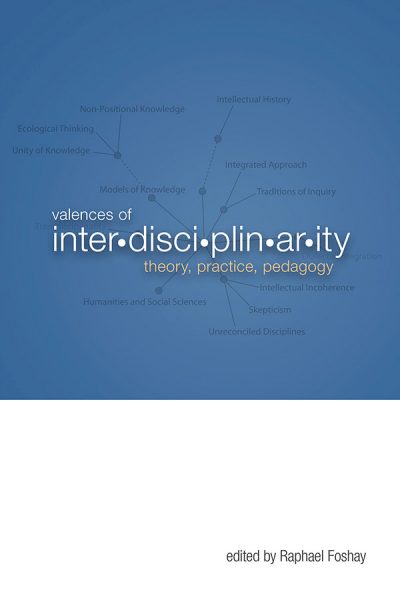A Designer’s Log Case Studies in Instructional Design
Michael Power

The modern university can trace its roots to Kant’s call for enlightened self-determination, with education aiming to produce an informed and responsible body of citizens. As the university evolved, specialized areas of investigation emerged, enabling ever more precise research and increasingly nuanced arguments. In recent decades, however, challenges to the hegemony of disciplines have arisen, partly in response to a perceived need for the university to focus greater energy on its public vocation—teaching and the dissemination of knowledge.
Valences of Interdisciplinarity presents essays by an international array of scholars committed to enhancing our understanding of the theoretical underpinnings and the practical realities of interdisciplinary teaching and research. What is, and what should be, motivating our reflections on (and practice of) approaches that transcend the conventional boundaries of discipline? And in adopting such transdisciplinary approaches, how do we safeguard critical methods and academic rigour? Reflecting on the obstacles they have encountered both as thinkers and as educators, the authors map out innovative new directions for the interdisciplinary project. Together, the essays promise to set the standards of the debate about interdisciplinarity for years to come.
For students and scholars in the humanities and social sciences, the critical and multifaceted essays in Valences of Interdisciplinarity bring together a good conspectus of issues in this field and a stimulating and provocative intervention into current debate. Highlighting the relation between various interdisciplinarities and projects of enlightenment, democracy, and liberation, this volume brings epistemological-type issues into dialogue with ethical and political ones.
Andrew Wernick, Trent University
What all the essays here seem to be wrestling with—at their core—is the creation of an engaged self, both for the practitioner of interdisciplinary studies and for students…. In wrestling with the shifting valences of interdisciplinarity, the authors reveal their own quests for integration, to find a stable nucleus within the cloud of shifting electrons.
Intergrative Pathways, The Newsletter for the Association for Interdisciplinary Studies
This volume of essays could be of interest to faculty and administrators of graduate interdisciplinary programs or those contemplating developing such programs, because it shows the complexity of clarifying what such a program would be, the value of such programs and the challenges in gaining acceptance for them.
Impact
This work is licensed under a Creative Commons License (CC BY-NC-ND 2.5 CA). It may be reproduced for non-commercial purposes, provided that the original author is credited.